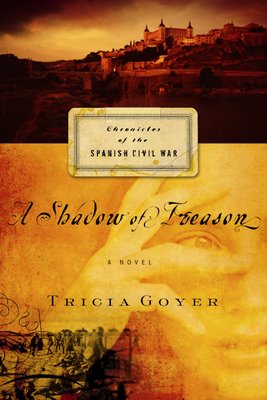 This Fortifying Friday, grab a cup of coffee or tea, settle in, and enjoy the story of Cathy Marie Hake’s journey to publication.
This Fortifying Friday, grab a cup of coffee or tea, settle in, and enjoy the story of Cathy Marie Hake’s journey to publication.My Journey
Birds fly, fish swim, and authors play with words. We can’t help ourselves. Words are the threads, beautifully arranged, woven, and knotted into a magic carpet that carries us to places and times of our imagination. Faith is working on that carpet when we don’t know if it will ever get off the ground.
I could barely get off the couch, let alone think of flying when I began to write. Pain laid me low for a long time, and I read to escape. Isn’t that what magic carpets do? Take us away from problems and disappointments? Tossing a book onto the coffee table, I spoke the fateful phrase every author says: “I could write better than that.”
Wouldn’t you know, for all the times my husband hasn’t listened to me, that time he did? He lifted me off the couch, dragged me to the computer, and challenged me to do just that: to write a book.
This is where I make the shameful confession that I am Queen of the Technopeasants. When directions involve more than one step, my eyes glaze over and my knees knock. My husband, on the other hand, can’t stand needles. It doesn’t matter if it’s a sewing needle or a syringe, he disappears faster than steam evaporates. Early on in out marriage, we agreed to The Button Rule: If it has a clothing button or a belly button, I handle the matter; if it has any other button, toggle, switch, plug or battery, he handles it. For Chris to stick me in front of a computer broke that steadfast rule. But my husband had faith in me and that this was God’s new direction for my life, so I set to work.
"FAITH is the substance of things hoped for; the evidence of things unseen." (Hebrews 11:1)
Writing is an act of hope—that we can connect words to tell a story that is meaningful and well-told. So we set out gathering slender threads and painstakingly arrange them to construct a carpet. We hope someone will buy our carpet once it’s done. Once I devoted myself to the endeavor, it wasn’t as easy as I’d thought. Threads knotted, or I’d weave the words too loosely and have to clip or unravel.
Dozens of books—some finished and others incomplete--filled my computer. I had a veritable carpet bazaar. But would one ever fly? I’d heard about authors getting “the call” where an editor or agent called with the news of their first sale. I dreamed, hoped, and wrote. The call didn’t come. So one day I opened an email. It said, “We’d like to contract this book.” Nothing had gone as I planned, but it went as God wanted. Suddenly my carpets were flying. My first published novel and a novella released the same month—eight years after I’d started. But editors ask, “What else do you have?” I had plenty. Some of them flew. Others have remained drawer babies—but those babies taught me the basics.
Faith and hope—they saw me through. Weave your stories and trust the Holy Spirit to let them take flight. Between writing and finally getting published, I didn’t just learn the mechanics. Friendships formed. God and I grew closer. Had I never been published, the carpets my words wove let me fly. Angels have wings; authors have carpets. We both carry God’s message, and it’s an honor.
Oh—and the Button Rule? To this day, I destroy at least one computer a year. Don’t ask me how. I couldn’t tell you. My husband works in the computer industry and my ability to break computers astounds him. He brought one computer back to life so many times, we nicknamed it Lazarus. We also had a graveyard of computers in the garage. He taught my son about computers by salvaging parts from them and building a system. I named it Frankenstein.
Love,
Cathy Marie Hake
 Cathy Marie Hake is a Southern California native who escapes the concrete jungle for the wide-open spaces and tree-filled world in her best-selling humorous historical novels. In her writing, Cathy attempts to capture a unique glimpse of life and how a man and woman can overcome obstacles when motivated by love. In her inspirational pieces she enjoys the freedom of showing how Christ can enrich a loving couple's relationship. She met her sweetheart in the High School department at church and married him after finishing nursing school. They have two children and two dogs (one of them even moos - one of the dogs that is, not the kids). Faith in God, a loving family, and a wacky sense of the ridiculous keep her going.
Cathy Marie Hake is a Southern California native who escapes the concrete jungle for the wide-open spaces and tree-filled world in her best-selling humorous historical novels. In her writing, Cathy attempts to capture a unique glimpse of life and how a man and woman can overcome obstacles when motivated by love. In her inspirational pieces she enjoys the freedom of showing how Christ can enrich a loving couple's relationship. She met her sweetheart in the High School department at church and married him after finishing nursing school. They have two children and two dogs (one of them even moos - one of the dogs that is, not the kids). Faith in God, a loving family, and a wacky sense of the ridiculous keep her going.You can find out more about Cathy and her work by visiting:
Cathy’s Web site: http://www.cathymariehake.com/
Saturday blogger at: http://www.writespassage.blogspot.com/




























